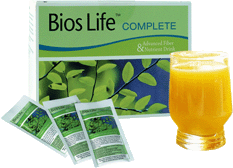How does Bios Life lowers cholesterol?
 Bios Life lowers your cholesterol in 4 ways naturally:-
Bios Life lowers your cholesterol in 4 ways naturally:-
1. Blocks re-absorption of cholesterol from your diet
The liver uses cholesterol to produce bile acids, which are released to break down the fat in food . As Bios Life enters the intestinal tract, it forms a matrix gel trapping the bile acids after they have digested the fats and later removes them through your bowels. As the level of bile acids drops after each meal, the liver will make more bile acids using the existing cholesterol in your blood stream.
2. Blocks Absorption of Cholesterol from your Food
Sunflower oil and Soya Bean oil are rich in phytosterols that cannot be absorbed by the body and thus block the sterol receptors in the intestinal tract, from absorbing Cholesterol.
The liver uses cholesterol to produce bile acids, which are released to break down the fat in food . As Bios Life enters the intestinal tract, it forms a matrix gel trapping the bile acids after they have digested the fats and later removes them through your bowels. As the level of bile acids drops after each meal, the liver will make more bile acids using the existing cholesterol in your blood stream.
2. Blocks Absorption of Cholesterol from your Food
Sunflower oil and Soya Bean oil are rich in phytosterols that cannot be absorbed by the body and thus block the sterol receptors in the intestinal tract, from absorbing Cholesterol.
3. Reduces Cholesterol production by the Liver
The liver makes cholesterol using an enzyme HMG-CoA reductase. Sugarcane has a natural plant chemical called Policosanol, which has been found to naturally reduce this enzyme, thus causing the liver to slow down the cholesterol production.
4. Breakdown and Removes LDL from your blood stream
Chrysanthemum flower has been used for centuries in Traditional Chinese cures. Unicity’s research has developed a method, to stimulate the enzyme that breaksdown and removes LDL from your bloodstream.
Now, drink your Bioslife 10 mins before every meal, because you can naturally lower your heart attack and stroke risk.


No comments:
Post a Comment